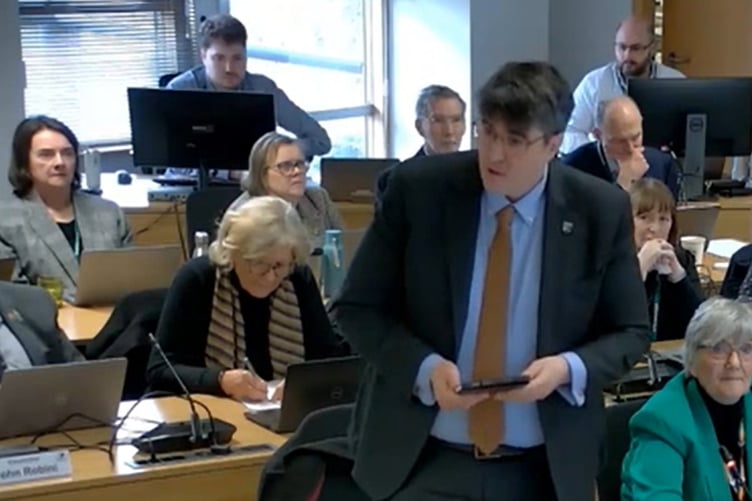No promises have been made that Surrey will get full devolution and a directly elected mayor – despite it being the ‘entire purpose’ of the lengthy and arduous process of splitting the historic county and its 11 boroughs and districts into two mega councils.
It had been understood that Surrey’s councils would be abolished and reformed into either two or three unitary authorities and two sets of elections, first for the new bodies, and then for an overarching mayor in 2027.
Surrey County Council’s website outlining the devolution and Local Government Reorganisation (LGR) process and mentions the word Mayor seven times – and even lists May 2027 as when residents would go to the polls to decide who would be responsible for strategic services such as education, policing, fire and rescue.
However, the Government’s own timetable for Surrey only lists a May 2026 election for the two shadow councils, followed by the next round of balloting in May 2031 – and then every four years after that.
Furthermore, the Ministry of Housing, Communities and Local Government has said that the references to Surrey getting a directly elected mayor were “not quite accurate” as the decision “has not been confirmed” and that they were only “committed to working with partners to establish a strategic authority for the area”.
They would clarify that its announcement, that Surrey would be dissolved and reformed into East and West Surrey was “not promising a mayor”.
Areas with strategic mayors, such as London and Manchester, are given extra devolved powers from Government with the argument being it gives local people a greater say in the running of their areas.
Writing to the leaders of Surrey’s councils, the ministry would only say that simplifying local government ensures “a strong foundation for devolution”.
It said it was committed to working with partners across Surrey, including the new unitary authorities, to establish a strategic authority to ensure relevant functions held at the county level can continue on that geographic footprint where possible, such as transport and adult skills.
It added that the establishment of a strategic authority would be subject to the relevant statutory tests being met and local consent – but makes no mention of a directly elected mayor; important because strategic authorities are different from Mayoral Strategic Authorities.
According to the ministry, Foundation Strategic Authorities include non-mayoral combined authorities and combined county authorities, and any local authority designated as a strategic authority without a Mayor.
Mayoral Strategic Authorities, such as the Greater London Authority, all Mayoral Combined Authorities and all Mayoral Combined County Authorities “automatically begin as Mayoral Strategic Authorities” – and only those that meet specified eligibility criteria may be designated as Established Mayoral Strategic Authorities to unlocks further devolution.
It has left the county council saying devolution now an “ambition” rather than a formality. Others have called out the council for rushing into such a seismic shift, and cancelling elections to get devolution done – without any guarantees over whether the county would get a mayor.
Cllr Paul Follows, leader of the Liberal Democrat group at Surrey County Council said having a mayor “was the entire purpose of the reorganisation”.
He added: “The county council has gone in on this nonsense without any guarantee over the reason they have it, despite that being the principal reason the county has initiated this process – but they have yet to receive any guarantees.
“I’m sure the county will reflect their reasons for going for this in the light that the ministry said we may not be getting devolution.”




.jpeg?width=209&height=140&crop=209:145,smart&quality=75)
Comments
This article has no comments yet. Be the first to leave a comment.